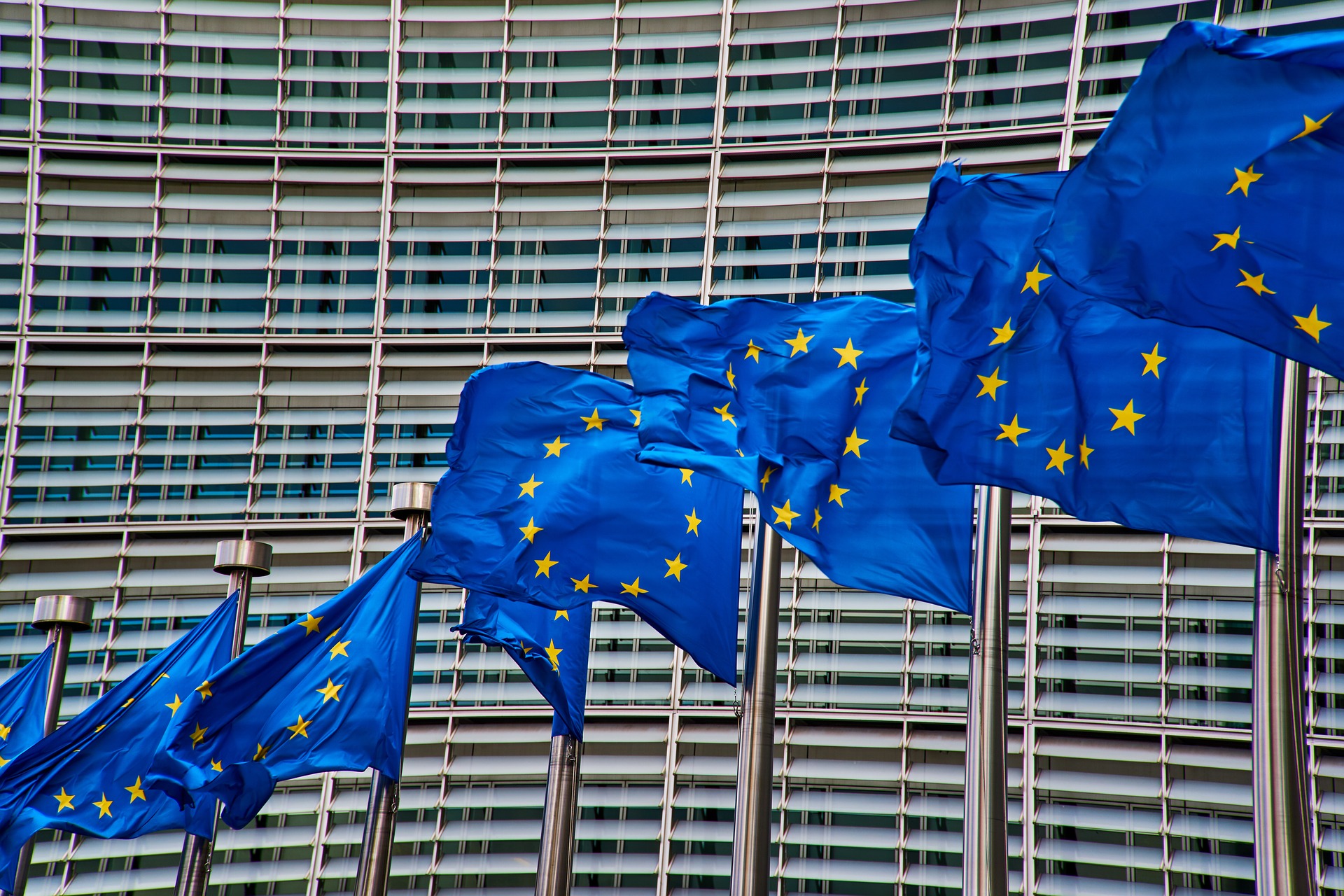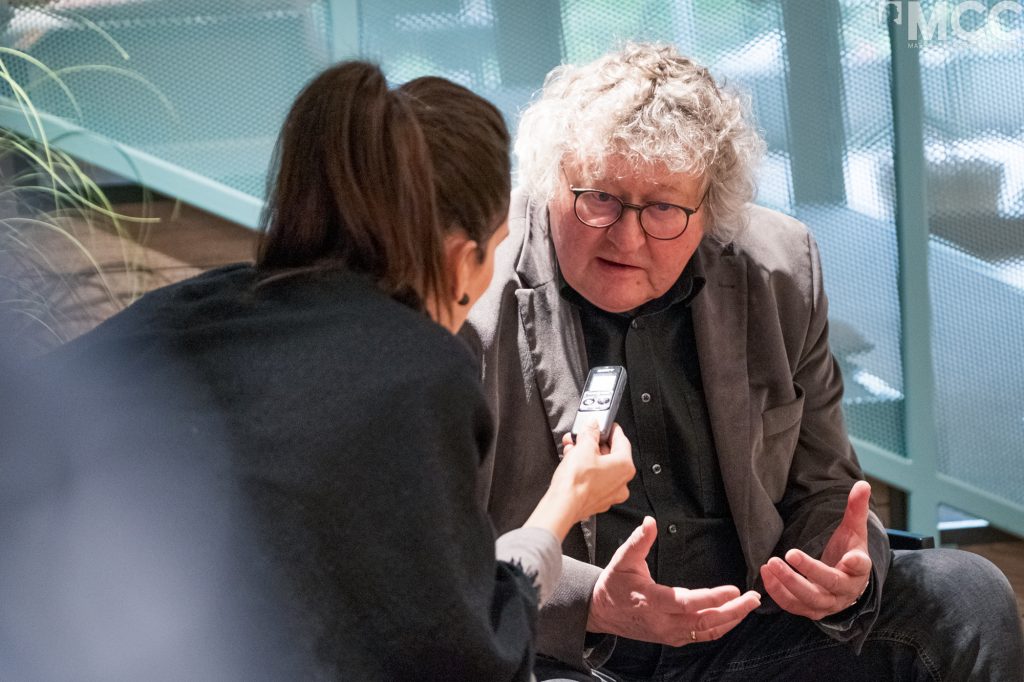
"We identified issues that might be breaching [the rule of law] in Hungary and affect the EU budget," said Vera Jourova, the Vice-President for Values and Transparency.Continue reading

“Von der Leyen and her circle, as well as the SPD and its chancellor, cherish the idea that Viktor Orbán has transformed his country from a flourishing democracy, where there have been regular changes of power, into an autocratic state with elections that merely appear to be free. And a ’semi-dictator’ is congratulated only when it is unavoidable due to foreign policy reasons,” German political scientist Werner J. Patzelt told Ungarn Heute. Hungary Today’s sister site also asked him whether Hungary’s Prime Minister made a mistake when he talked about illiberal democracy. He was also asked about the rule of law mechanism and asked him to give a definition of the “rule of law.” In addition, he was asked about the alleged gender lobby in Europe and in Hungary. The political scientist admitted that he had come to Hungary with the intention of finding out whether the perception on Hungary circulating in Germany is true or not, and also where the differences between what is true and what is reported come from. Interview.
This article was originally published on our sister-site, Ungarn Heute.
“We won a victory so big that you can see it from the moon, but certainly from Brussels,” said Prime Minister Viktor Orbán on election night. Was it seen from Germany as well?
In Germany, every effort was made to overlook or make the scale and the spectacle of this repeated election victory seem insignificant. On the other hand, the headlines would have been huge if they had read: ‘The Hungarian people liberate themselves from the Orbán dictatorship.’ As it was, however, many were embarrassed by the fact that the Hungarians just did not follow the demand raised in the German and Western media to end the rule of the Fidesz government. Many in Germany really do not understand why this did not happen – presumably because they know and understand too little about Hungary’s domestic politics.
Yes, that’s the media. But I was thinking more of the Chancellor and the President of the European Commission, who is German herself. Scholz did not congratulate Orbán until almost three weeks after the elections, on April 22 in a press release, while Ursula von der Leyen still has not done so. Why?
Von der Leyen and her circle, as well as the SPD and its chancellor, cherish the idea that Viktor Orbán has transformed his country from a thriving democracy, where there were regular changes of power, into an autocratic state with elections that merely appear to be free. And a semi-dictator is congratulated only when it is unavoidable due to foreign policy reasons.
The Hungarian opposition, on the other hand, would have received congratulations with great joy if they had won the elections.
Of course, Prime Minister Orbán has also contributed to this deeply rooted belief that Hungary is on the wrong path since he declared and repeated several times that he does not want a liberal democracy in Hungary, but an illiberal one. In Western political discourse, this term refers to a democracy that is at best deficient, usually a semi-dictatorship. What Viktor Orbán really meant becomes clear only if one is familiar with the inner-Hungarian discourse and reads his famous speech made in Tusnádfürdö from 2014. But no one in the Western public critical of Hungary does that. So Viktor Orbán is seen as the gravedigger of Hungarian democracy – and the European Union, of course, does not want to accept such a person. And because Germany has long played the role of a moral superpower, it has been particularly eager to disparage Hungary and its government.
Was the term “illiberal democracy” misunderstood in Germany?
In Germany, this term is understood in precisely the way it is used in Western political and political science discourse. There, an ‘illiberal democracy’ is a deficient democracy in the sense that there are elections, but that neither freedom of the media nor independence of the courts is guaranteed, and everything runs precisely according to the formula once used by the communist dictator Walter Ulbricht: “It must look democratic, but we must have everything in our hands.”
So it was most unfortunate that the Hungarian Prime Minister, although he wanted to say something very different, provided an opportunity for attacks with his speech about ‘illiberal democracy.’
In your opinion, is it possible to imagine a politician understanding and using such a term differently? If so, was it a mistake on Viktor Orbán’s part?
Experience teaches us that not only in soccer does a clever opponent use anything that can give him a field advantage. Therefore, it was expected that those who do not like Hungary or the Fidesz government would understand or at least interpret a term like “illiberal democracy” in such a way that it helps them to criticize or disparage Hungary and its prime minister. So it was a mistake to provide the political opponent with such a term without any context. It would have been possible to connect it to German debates, for example, by contrasting the goal of a value-based democracy with family, nation and Christian culture with value relativism and economic liberalism, in which everyone simply does what they want, and in the end the strongest prevail. As a soccer player, Viktor Orbán also knows that you can’t undo a failed pass that allowed your opponent to score. You have to create your own new scoring opportunities. In domestic politics, this works the same way.

Photo: Mihály Molnár/MCC
Less than two days after the elections, Ursula von der Leyen announced that she would initiate the EU’s rule of law procedure against Hungary. This is actually a continuation of the argument about illiberal democracy. In the Hungarian government’s argument, it often occurs that the rule of law is not a definable concept. Could you define it for us, though?
A constitutional state, as this term is used in German debates, is a state in which all state action is bound by legal norms, and in which the legal norms themselves are not enacted arbitrarily, but only along the lines of rules that a fair constitution, supported by a broad majority of the population, provides for them.
To put it bluntly: A government must not be able to bring about changes to the constitution at its own discretion or to bring judges into office who are then responsible for overseeing compliance with constitutional or legal rules.
By presenting the matter in this way, it becomes very clear where or why Hungary’s rule of law is being questioned in German and Western debates. And, of course, such a rule-of-law procedure, like the threat of it earlier, is also used to make an example of Hungary, namely according to the motto: “What is European, we determine – and not Eastern Europeans with, compared to us, an inadequate cultural background!”
Could there be different concepts or ideas about the rule of law in Europe? Is there a concept that prevails in Germany but means something else in Hungary?
In fact, in a continent with so many different political, legal, and intellectual traditions like our Europe, of course, the terms of political and legal language are not the same everywhere. So the follow-up question is: What do we do in such a situation? Are we allowed to let different guiding ideas and concepts stand side by side – or do we have to unify them? And then there is also the question: On the basis of which criteria do we want to judge what should be unified and what can remain coexistent?
In practice, we in Germany have no problem at all with allowing the Anglo-Saxon concept of the “rule of law” to exist alongside our ideas of the rule of law, which are accentuated quite differently.
The central idea is the same, and the differences in concepts simply reflect different historical developments or experiences. Along this line of thinking, one should also proceed with legal traditions other than Western ones. But with regard to Hungary, the Western public has now settled on the idea that everything the Fidesz government does is to be placed under general suspicion. So it is best to come down on Hungary like a schoolmaster on a rebellious pupil. And if he doesn’t mend his ways, he has to be put in the corner or shown the door.
You mentioned the judiciary, among other things. But time and again, the question also comes up that the media freedom situation in Hungary is not good. Our Chancellery Minister often says, for example, that Hungary still has a more colorful media landscape than Germany. Do you share this opinion, perhaps you already know the Hungarian media landscape better?
Here you have to consider at least three perspectives. Firstly, in 2010 the Fidesz government quite deliberately began to eliminate what it perceived – rightly or wrongly – to be left-wing hegemony in the media sphere. By now, according to Fidesz’s view, a fair balance has finally been established. From the point of view of the Hungarian opposition, however, this appears of course, to be the disempowerment of its media supporters.
Secondly, it seems that the Hungarian opposition – which is basically very strong only in Budapest and a few other cities – is trying to compensate for its domestic powerlessness by networking with international journalists and then using their reporting as a resource for their domestic political competition.
In fact, many journalists who report on Hungary do not know Hungarian themselves, which is why they travel to Budapest in particular to get information about the situation in Hungary from people who – as is common in Budapest – speak English or German very well. In Budapest, of course, one also finds a particularly large number of interlocutors who belong to opposition civil society organizations or opposition-friendly media.

Photo: Mihály Molnár/MCC
Thus, a cycle of effects emerges in which opposition views – for example, ‘Orbán has robbed us of our freedom of opinion and media freedom’ – are fed quite directly into the international perception of Hungary; and from there they are then adopted as “objective descriptions by foreign observers” in the discourse within Hungary. Because journalists are also particularly sensitive to media issues, their efforts to make a differentiated assessment of the situation that easily comes out as follows: “Our Hungarian interlocutors report that they can certainly still express their opinions and do not put themselves in personal danger by doing so; but they ruin their career opportunities if they do not comply with the wishes of the Orbán government!”
Thirdly, it is not the same whether a state and its government monopolize the media landscape, for example by setting up regulatory authorities staffed by party supporters, or whether journalists, so to speak, bring themselves into line. This is what we are seeing in Germany. For many years, empirical studies of journalists there have shown that two-thirds to three-quarters of media people lean toward the Social Democrats, especially the Greens, and sometimes also the left.
Among the volunteers who started at ARD, [a joint organization of Germany’s regional public-service broadcasters] a recent survey showed that no less than 90 percent wanted to vote for the Greens, and some also for the SPD. And, of course, they can all write or broadcast in complete freedom of opinion and media. For those few journalists, on the other hand, who feel themselves to be to the right of the political center, this situation feels something like being a single woman who runs into a group of macho men in the evening.
As a result of all this, for those many readers, listeners and viewers who are not green or social democratic for their part, precisely those media positions that they can identify with are absent. So for them, an objectively free media landscape looks like a left-green media bloc. This has only come about because most German journalists are left-wing green or want to present themselves as such. But from the point of view of many media users, this result of free – if probably often opportunistic – position-taking looks as if it has come about because of a lack of media freedom. Of course, many then turn to alternative media to the right of the political center, whether that is ‘Tichys Einblick’ or ‘Junge Freiheit.’ But those who do so openly like to be treated as if they had tampered with pornography.
Working in such contexts, German journalists, especially those on the left of the political center, understandably have the impression that there is very well – and indeed – media freedom in Germany, but not in Hungary. And because journalists on the left really do have more public impact in Germany than in Hungary, it is particularly obvious for them to conclude that this is due to German freedom as opposed to Hungarian censorship.
You mentioned state media. Doesn’t the problem exist here in particular? With the state media? How does it look in Germany? In Hungary, the ruling power exercises power over the state media one hundred percent. Shouldn’t that be changed?
It should be the norm for media workers to be critical of the bearers of political power, no matter who they are. It is by no means the task of journalists to simply reinforce the power of those in power. A great German journalist once put it like this: “A journalist is not to be associated with any cause – not even a good one.
But in Germany, for reasons that are easy to understand historically, we have had a tradition of so-called “advocacy journalism” since the 19th century. Today, this means that journalists should put themselves at the service of democracy, human rights, and peace. But isn’t that best done by describing a government’s actions in a factually accurate way, by criticizing them on the basis of knowledge of real contexts, and by classifying them on the basis of visible, generalizable standards of value? These three things have been lacking in the German media for quite some time.
One more question about the rule of law. The Hungarian government keeps saying that this debate is exclusively about the Hungarian Child Protection Act. How do you see that? Is there really such a strong gender lobby both in Germany and throughout Europe that would endanger us, and would it not have been more appropriate if the government had treated the issue of child protection or pedophilia and the alleged gender lobby separately, so to speak, in this law?
In Germany, and presumably in other Western countries as well, the contents of the Hungarian Child Protection Act are basically unknown. So one simply perceived the following: Hungary prohibits homosexuality, transgenderism, and everything that seems to be connected with it. But because LGBTQ rights are a great accomplishment, at the same time one realizes that Hungary is once again on a completely wrong path. So anyone who loudly criticizes Hungary in this situation is really doing good, even to the point of insulting it – even if it was meant just that way – by demonstratively raising rainbow flags at the last international soccer match between Germany and Hungary.
However, all of this is much less about an influence of LGBTQ activists, but about the pursuit of political correctness that is as widely visible as possible. In German political discourse, it is considered proof of liberalism, cosmopolitanism, and progressiveness to regularly stand up for LGBTQ rights.
On top of that, because liberalism, cosmopolitanism, and progressiveness are important symbols of prestige in Germany, there is always a competition to outdo each other in practicing these political virtues. And if you can combine that with resistance against the terrible Orbán regime: all the better!
Wasn’t the main problem with the law in the beginning that it was about pedophilia, and then these two issues were actually mixed together?
Or at least the impression was given that the Hungarian government was acting on the assumption that every homosexual or transsexual was simply a threat to children. Objectively, of course, this is nonsense. But if – according to the widespread view in Germany – the Hungarian government even puts such nonsense into law, then it shows what kind of a lack of sense prevails in the parliamentary majority that supports it. So, once again, a message must be sent out.
You mentioned illiberal democracy at the beginning of our conversation. There was another breaking point in the relations between Angela Merkel and Viktor Orbán. That was just during Angela Merkel’s term in office when Orbán talked about illiberal democracy, and then later the migration issue came on top of that. There were two very different points of view on this issue: a welcoming culture on one side, a fence on the other. How do you see that? Could these two issues still be on the agenda between Scholz and Orbán?
The migration issue is still on the agenda, of course. After all, in the coming years and decades, due to state collapses, wars, economic development problems, and climate change, there will be all kinds of migration movements that will greatly affect Europe. In Germany, however, the migration issue has been pushed into the background by journalists – probably not without intention. This happened as a result of the massive coverage of climate change and climate policy, then the Covid-19 pandemic, and now the war in Ukraine. Significantly, a top German politician recently pointed out that “real” refugees were now arriving in the country.
Here, once again, Germany’s domestic conflict over migration policy becomes visible. In 2015/16, the emphasis on a ”welcoming culture” was also an important domestic political weapon against those who warned that Germany’s boundless hospitality for refugees could overburden the German welfare state. This could not be true. So such concerns had to be portrayed as right-wing populist phobias.
On top of that, domestic politics were combined with foreign policy. Hungary’s government, already suspected of suppressing democracy and freedom since 2010, could now easily be declared an ally of the German right-wing populism to be fought. In fact, Hungary did exactly what Dresden’s Pegida and Germany’s AfD demanded at the time. So now one could fight two evil opponents with the same arguments. In any case, it was completely clear to all ‘decent Germans’ at the time that Hungary’s migration policy was both right-wing populist and factually wrong.
Therefore, the punchline is that even one of the harshest German-speaking critics of the Fidesz government, namely the Austrian journalist, Paul Lendvai, wrote in his recently reissued book on “Orbán’s Hungary:” “Unfortunately, Orbán was right.” In fact, the European Union’s current policy is essentially the one that Viktor Orbán initiated at the time against great opposition. It remains to be seen whether something similar may become apparent with other currently fiercely-opposed Hungarian policies.
You also recently mentioned the war in Ukraine. In recent weeks, Germany and Hungary were criticized simultaneously by the President of Ukraine, because in his view, Hungary and Germany would not or do not want to impose sufficiently strong sanctions in the energy sector. Is this strategically a good and also intentional decision for these two countries to take the same stand?
Most Germans would be embarrassed to be told that they essentially represent the Hungarian position on the war in Ukraine. This is: We do not want to be drawn into the war under any circumstances, we must not allow it to escalate, and we must bear in mind that we are largely dependent on Russia for energy.” Germany’s energy dependence on Russia, moreover, was caused entirely by Germany itself.
Unlike Hungary, of course, Germany has no bilateral tensions with Ukraine, because there is no particular German minority there whose interests Germany’s government should be concerned about. What Germany and Hungary have in common is that they both want to stay out of the war as much as possible, which is, of course, much more difficult for Germany than for Hungary because of its position of power within Europe.
Conversely, one understands the Ukrainian President. He is fighting desperately to avert victory against his country and is trying to mobilize as much foreign aid as possible. If Ukrainian politicians sometimes use a bad tone, then people who are also fighting for their own survival should be the ones who criticize them!

Photo: Mihály Molnár/MCC
What do you think: will Budapest or Berlin give in on this issue, in terms of sanctions against the energy sector? Can these two countries be forced to do so by the European Union?
Germany will not be forced to ruin its – not only chemical – industry. After all, Germany’s foreign minister recently declared that she wanted to be independent of Russian oil supplies by the end of the year. But this is easier to achieve with oil than with natural gas, because one is not tied to existing pipeline systems. Incidentally, it is interesting to see Germany, which has been so self-important in energy policy for so long, now in the role of a supplicant, after having strained European solidarity in so many ways for so long. Of course, everyone in Europe knows that the entire EU will suffer as soon as the German economy weakens. So Germany can also demand a lot of solidarity, so to speak.
Then is it simply a political speech or will the European Union at some point make the decision to make itself independent of Russian gas and completely impose sanctions against the Russian energy sector?
The basic decision has already been made as the EU wants to make itself as independent as possible from Russian energy supplies as soon as possible. The question is how to achieve this without too much self-damage, i.e., without paralyzing large parts of the economy, creating unemployment, minimizing tax revenues, and thus depriving the country of further political opportunities.
Incidentally, even the once ardent supporters of Nord Stream 2 have now realized that it does not make much sense to finance the arms industry of a Russia that is waging or threatening wars of aggression with billions of euros every day.
There are traditionally very close economic ties between Hungary and Germany. German companies employ tens of thousands of people in Hungary. It is often used as a point of reference in disputes between us, saying that economic ties make Germans more lenient toward criticism of the Hungarian government. What would you say? Is that really a reference point in the debates? Critics say that Hungary is very dependent on Germany in many areas. Is it possible that these German companies will leave the country overnight?
Given the collapse of international supply chains as a result of the pandemic, also given the disruption of international supply flows due to the sanctions against Russia, the German economy can be very happy with any country where there is no fear of disruption of economic cooperation. Hungary, traditionally friendly to Germany, is one of these countries. Unfortunately, some in Germany, partly because of the preponderance of our country in dealing with Hungary, tend to be arrogant. This is less true in the field of economics, but it is very true in the field of politics. It would be better not to adopt an attitude of arrogant superiority toward Hungary and other countries that are smaller than Germany. Former Chancellor Kohl was much wiser in this respect when he declared it to be Germany’s reason of state to take the interests of our not-so-large neighbors very seriously and to respect them at all times.
If you were to guess, when and where will the first official meeting between Olaf Scholz and Viktor Orbán take place?
I can’t predict that. The German chancellor now first has to get the ‘traffic light’ coalition through the Ukraine war and its follow-up problems. Then the Bundeswehr will have to be expanded for years to come and Germany’s all-too-careless energy transition will have to be tinkered with. The question may also soon arise: How long can the SPD tolerate a chancellor who deviates so far from previous SPD policies? And how long will this coalition last? In any case, a chancellor who is under such great pressure certainly has more urgent things on his agenda than a visit to a country whose political direction he doesn’t like.
You have been living here in Hungary for more than half a year. Is there anything that has particularly surprised you about us Hungarians in these six months? It doesn’t matter whether it’s any customs or political peculiarities.
Since I didn’t have any fixed ideas about Hungary before I came here, I didn’t have any surprises. I came here with the intention to find out what is true or not true of the perception of Hungary circulating in Germany, and also where the differences between the actual and the reported come from. So I have used several months to get an accurate picture of Hungary through many conversations and extensive reading of how Hungary has been shaped by its history, also by its transformation since 2010. I am currently writing all this down in a book about Hungary. And in the process, I realize how much I have come to appreciate this country and its culture.
Did you get answers to these questions?
Yes, I now know what is true and what is not about the German perception of Hungary, especially in the media.
And what is true and what is not?
It is not true that Hungary is a semi-dictatorship. It is true that Hungary has a divided political culture. Also, political climate in the capital, Budapest, is very different from what is felt nationwide. It is also true that Hungary’s opposition tries to use the leverage of foreign media and civil society organizations for its domestic political struggle through its international networks. This does not give them an advantage in Hungarian elections, but it does darken Hungary’s international image. This is a very unpleasant situation. And unfortunately, Hungary’s government and opposition have not yet found a way to establish constructive relations with each other.
Featured photo by Mihály Molnár/MCC